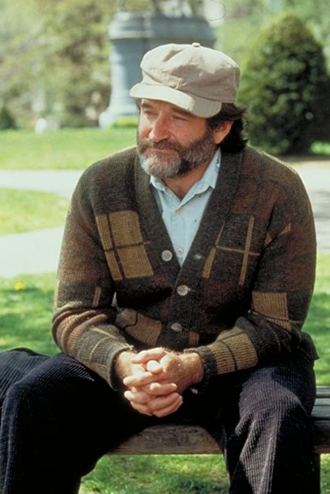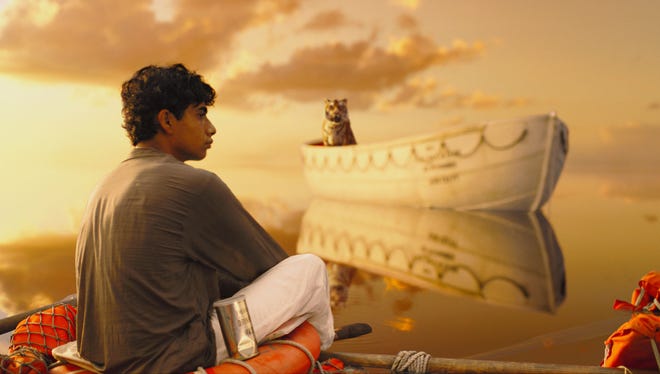I have made an essay where I argued the film adaptation of The Half-Blood Prince boasts more artistic merit than its source material for its ability to convey the characters’ psyche and the story’s general atmosphere more effectively.
I wrote that because I am annoyed by how easy it is for people to dismiss screen adaptations. While it is true filmmakers enact unnecessary changes and omit certain crucial elements from the narratives, we also have to remember literature and films are two different formats.
The former tells stories entirely through written words (with bouts of illustrations) while the latter does so through audiovisual means. Surely, there bound to be differences in how each format unfolds the same narrative! If you expect the films to be the exact copies of the novels, then why bother adapting them in the first place?
While I have condemned the Goblet of Fire and Order of Phoenix for their unfaithfulness to the original stories, there is one change in every HP film which I do appreciate.
When I first watched the films, I noticed how the Hogwarts uniforms include neckties, similar to the real-life British school uniforms, albeit with robes replacing the blazers. I also noticed that while some adult characters wear clothes we associate with witches and wizards, some also adorn muggle-ish attire, albeit with pointed hats and longer coats. So, I was shocked when I finally read the books.
I was (and still am) rather disappointed by how the characters’ original costumes are very much cliches of the fantasy genre! Unlike the films, the source materials determine clear boundaries between muggle fashion and one of witches and wizards. In fact, Rowling also made recurring jokes in which wizards and witches try to emulate the ways muggle dress and, more often than not, end up with hilarious results.
For a long time, I didn’t know why the alteration was enacted. I still don’t. But, on a personal level, I am glad it happened.
As I said before, literature narrates through written words. For me (and I don’t know if this is common or not), any written descriptions of physicality never leave strong mental images in my head, unless they are accompanied by illustrations; so, when I have the mental images, I am influenced by the illustrators’ interpretations.
The copies of Goblet of Fire and Order of Phoenix I possess contain illustrations by Mary GrandPré (at the time, the Indonesian editions lazily used her works). Sometimes the characters are drawn with muggle clothing, sometimes they are drawn with forgettable and bland-looking robes and pointed hats. This is why even after reading the illustrated copies for countless times, I still don’t associate overtly-cliched fantasy outfits with the Harry Potter universe.
Now just imagine if the films base the costumes entirely on the source materials: the cliches would be even more pronounced for me! Visually, the film series would be just another fantasy motion pictures featuring ‘weirdly-dressed’ characters!
(Okay, admittedly, there are many other fantasy films featuring characters wearing ‘muggle’ outfits; Harry Potter is not the only low fantasy series in existence. But, I will explain later why I support the filmmakers’ decision to alter them.)
Because my mind still associate magical human beings with pointed hats and robes -especially the colourful ones-, the fact that HP characters wear muggle-ish clothing is very refreshing for me.
But, at the same times, the characters’ outfits are still not entirely muggle-ish. The style seems to be a hybrid of muggle and ‘magical’ fashion; they look realistic enough, while still looking from out of this world… literally. Oh, and the muggle-fication is very gradual.
While the film version of Philosopher’s stone does feature muggle-ish costumes, they are mostly worn by the students as their uniforms and casual dress; the adult witches and wizards wear very much stereotypical ‘magical’ outfits. Then, as the series progresses, the costumes become more and more muggle-ish; the men wear more neckties and both men and women wear more suit jackets.
The characters’ muggle-ish outfits make them more real to me. The way they dress (somewhat) remind me of how real-life humans dress, remind me of how I dress! Their fashion, in a way, makes them more relatable. Admittedly, it does sound unnecessary and shallow.
Unnecessary because the Harry Potter universe’s thematics already includes grittiness with characters often put in situations not unlike the real-life injustice and prejudice any sane individuals know persistently exist. Shallow because judging a character’s relatability should be based on his/her substance, NOT her/his look. Surely, not only grittiness is more than enough to increase the relatability, it is also a significantly more profound way to do so!
While the arguments made by imaginary people living in my head do have points, I can provide some justification which is greatly influenced by my own bias.
One thing we should acknowledge is the characters live in a world almost entirely different from ours (apart from undeniable social and political parallels); don’t forget that despite the physical coexistence of both worlds in the same universe, the magical one is virtually concealed from the muggles. Inevitably, the (somewhat) lifelike clothing does significantly increase their relatability to me.
I also notice that, as the film series progresses (spin offs included), the increasing muggle-fication of the costumes and the increasing thematic grittiness (Order of Phoenix excluded) occur synchronously. As a result, the costumes as an indicator of relatability seems neither shallow nor pointless in my eyes.
But, I also do have an issue with muggle-fication. As said before, he source materials feature wizards and witches’ inability to dress like muggles which often ends with comical results. This running gag will be more hilarious in the films than it is in the novels due to the former’s strong emphasise on the visuality. There would be more reasons to love the screen adaptations!
But, as disappointed as I am by the missed opportunity, I accept we cannot have it both ways. If we want the filmmakers to muggle-fy the outfits, we have to eliminate the running gang and vice versa. Speaking solely for myself, I will be happy either way.
I have never discussed it with my fellow potheads regarding this. After finishing the previous paragraph, I was curious enough to do some googling and, unsurprisingly, I found out I am not the only one who have noticed the alteration.
There are forums dedicated to the discussions of films’ muggle-fied fashions. A Tumblr user actually sketched how Hogwarts’s uniforms originally supposedly look like in the novels. Even Bustle made an article (if you can call it that) about how fashionable the characters look in the film! Unsurprisingly, I also found an article written by the author herself.
She mentioned about the International Statute of Secrecy which requires wizards and witches to blend in by the means of fashion, their failure to comply, whether on purpose or by sheer incompetence and how the children and teens are more up-to-date with the muggle culture than the adults are due to intermingling with their muggle peers. Nothing new and mindblowing, really. Well, except for the last paragraph.
She stated that even muggle-hating individuals can’t help themselves from wearing the more practical muggle fashion in their daily lives! Interestingly, they try to express their sense of superiority by embracing ‘a deliberately flamboyant, out-of-date or dandyish style’, a sound tactic if you are a fashion snob with surface-level priorities, of course.
There are two reasons why I find this interesting:
Reason number one: it reminds me of real life bigots who enjoy the cultures of the people they have prejudice against. There are Chinese-hating Indonesians who love Chinese cuisines and there are Mexicans-hating Americans who love Mexican cuisines. Bigots love what the ‘others’ contribute to mankind while still refusing to humanise them. I wonder if this counts as cultural appropriation.
Reason number two: it defies how I imagine the books deal with clothing. While Rowling’s essay still draws strict boundaries between muggle and ‘magical’ fashion, I always thought the novels’ characters wore the former exclusively for entering muggle territories. And, to my surprise, it does not harm the overall narrative!
At times, Rowling’s authorial intent can be a nuisance; the revelation of Dumbledore’s sexuality, for example, seems to come out of nowhere as it was never hinted and his relationship with Grindewald is a shameless queerbait. But, regarding the fashion, it seems to complement the already-established universe.
While I indeed haven’t read the first three books, I clearly remember the characters utilising magically-powered muggle inventions like cameras, cars and radio sets. Hence, the idea that even the most prejudiced wizards and witches adorn themselves with the more functional muggle fashion is still within reason despite the absence of signs.
Before encountering the essay, I was very happy with how the filmmakers’ decision to muggle-fied the costumes, was disappointed by Rowling’s inclination to utilise cliched fantasy costumes (even though I still love that one recurring joke). But now, even though I am still delighted by the muggle-fication, I appreciate how this particular authorial intent compels me to see a previously unseen layer of the HP world-building.
It feels like a puzzle piece we didn’t know was missing.
.
.
.
.
.
.
.
.
Give money to this deadbeat, preachy blogger on Patreon.










